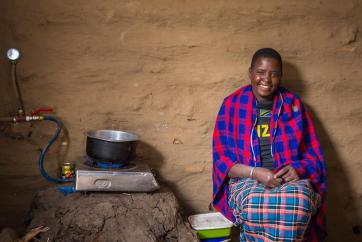Pastoralist women in Northern Tanzania are both the main victims of man-driven climate change and land degradation, and a force for positive change. Women also hold great responsibility for illegal tree cutting for charcoal making, often the only resource for quick income during crises. Rangeland degradation, affecting 60% of Northern Tanzania, has dramatically increased household insecurity for hundreds of thousands of pastoralists, nonetheless, pastoralism is the only livelihood thriving in these wildlife-rich communal lands. Wild dogs, cheetahs, lions, caracal, elephants, gerenuk, lesser kudu, oryx, are among the threatened species still roaming outside protected areas. Through the eyes of Maasai pastoralist women and participatory photography – they took pictures to portray their perception of climate change and the impacts on their lives - we will stimulate a discussion on integrated, gender-sensitive models to reduce their vulnerability.



